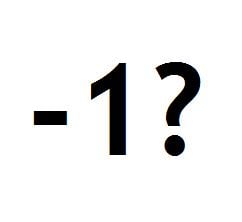Ever wondered why so many of those calculated years of birth from censuses are so consistently wrong by a year or so? For example, you know your great-grandfather, George, was born in May 1895 but Ancestry, FamilySearch and the others say it was 1896 because he was age 44 in the 1940 US census. The answer is that the standard method of estimating year of birth is wrong most of the time! Of course, that’s always assuming that your ancestor (or the person reporting their age at that point) knew what the correct age actually was!
Before I explain why, let me explain how to make a better estimate,
for any event occurring in the first half of any year, subtract an additional year.
Simple as that.
I can’t guarantee it will be correct but it will be correct more often than not. This works for all events where we know a person’s age on a particular date, whether censuses, migration records, military records, death records, divorce, marriage or whatever.
Since most major censuses have been held in the first half of the year I can say for sure that most birth year estimates from census records are wrong.
How so? Let’s go back to George.
- If the census had been held on Dec 31, 1940, we can be 100% sure that everyone then age 44 was born in 1896.
- But, if the census had been held on Jan 1 1940 (same calendar year, remember, but effectively one year earlier) we can be certain that everyone then age 44 was born in 1895. (Ignore Jan 1 births – I’m making a point!)
The US census was held on April 1, 1940. That’s about a quarter of the way through the calendar year. So there is a 25% chance that anyone then age 44 was born in 1896 . . . . but the chance is 75% that he was born in 1895.
So, if the event is before June 30 in any year, to give you the best estimate for the year of birth, subtract the age from the calendar year and then deduct an extra year. For George, subtract 44 from 1940, leaving 1896 and then take off another year to give 1895, which is correct.
Hope that works for you. I know I promised to show some maps in my next post. I got distracted. You know how it is . . . . !

I have always done something similar but use the full calendar year to reflect the potential birth year. For a census with an effective date of 1 June 1880 and an age of 5, that person was b.bet. 1 Jun 1879-1 June 1880. A later census might be based on 1 Apr or 1 Jan and you are able to consistently narrow the window that the birth date was likely to be in. If you follow this, many times the various censuses do end up being fairly accurate (although there were definitely errors made or wrong ages given).
They seem a year off in the 1900 US Census because the age you were on the 1st of January 1900 is the age that was used. The last birthday reflected is the age each person turned in 1899.
Thanks Bob. That’s exactly my point.
Assuming there are no mistakes, for those people born before April 1 (or perhaps when the enumerator came calling) the years should be the same. But for the 75% of people born after April 1 the calculated year of birth will be out by one.
Regards
Paul
Why are the birth years in the 1900 US Census seem to be consistently a year off, even though the year was explicitly written?